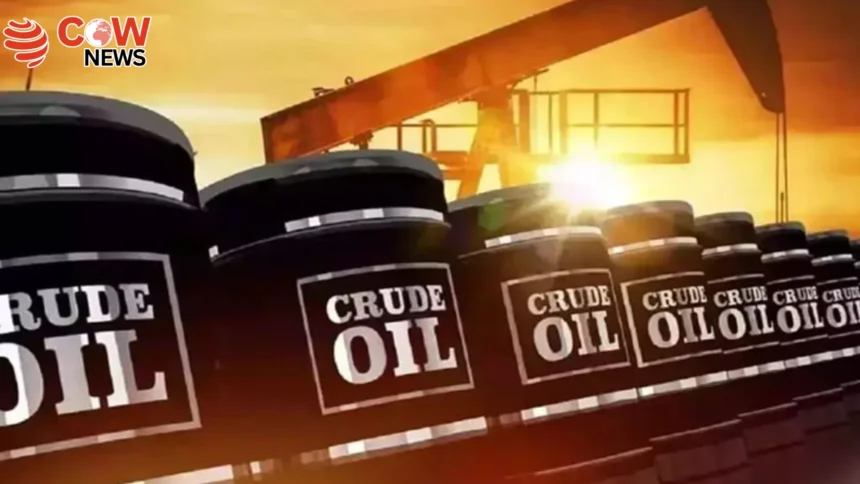LONDON ( The COW News Digital) Global crude oil prices rose on Monday following the Organization of the Petroleum Exporting Countries and its allies (OPEC+) announcement of a smaller-than-expected increase in oil production for the coming month. The move has reignited supply concerns amid ongoing geopolitical tensions and sanctions on major producers.
Brent crude futures climbed by 91 cents, or 1.4%, to settle at $65.44 per barrel, while U.S. West Texas Intermediate (WTI) crude gained 89 cents, or 1.5%, reaching $61.77 per barrel. The rise reflects renewed bullish sentiment in oil markets after OPEC+ confirmed it would add only 137,000 barrels per day (bpd) to its collective output starting in November.
Analysts say the limited production hike is aimed at stabilizing prices following recent declines and at offsetting market volatility caused by uncertain demand forecasts. Tina Teng, an energy market analyst, said the price increase was primarily driven by OPEC+’s cautious approach. “The decision signals the group’s intention to provide support to prices while managing expectations of oversupply,” Teng explained.
The OPEC+ alliance, led by Saudi Arabia and Russia, said the incremental rise would mirror October’s modest output growth, underscoring its strategy to maintain balance in the global oil market despite calls from some import-dependent countries for higher production.
Energy strategists at ANZ Bank noted that the additional 137,000 bpd increase remains manageable under current conditions, especially given tightening sanctions from the United States and European Union on Russia and Iran. “With supply disruptions intensifying due to geopolitical restrictions, OPEC+ seems focused on avoiding a price collapse while ensuring sustainable revenue streams,” ANZ analysts said.
The restrained production outlook comes at a time when demand patterns remain uncertain. Although global consumption has recovered from earlier pandemic lows, slower economic growth in Europe and Asia continues to weigh on projections.
Market observers suggest that if sanctions on Russian and Iranian exports persist, OPEC+ may face increased pressure to revisit its production strategy in December. For now, traders expect prices to remain supported near current levels, with volatility likely to persist due to ongoing geopolitical risks and currency fluctuations.
The modest supply increase reflects OPEC+’s continued balancing act—protecting producer interests while responding to global economic headwinds. Analysts forecast that oil prices could stabilize within a narrow range if output discipline holds through year-end.







